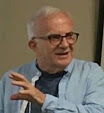We five cousins always went to the park on the Fourth of July. In 1960, the weather was cruelly muggy, but we ran, played, and picnicked until we were exhausted.
Darkness crept over us in slow motion.
We spread our blanket on the hillside along with a gazillion other sweaty,
sunburnt, malodorous kids. Soon, thousands of blood-sucking mosquitos joined
the fray, buzzing their praise to their Hexapoda god for this July fourth
feast.
Finally, the fireworks began. For a
brief while, brilliant colors and loud noises filled the sky. Babies screamed;
mothers oo-ed and ah-ed as rockets exploded above us.
When the last red glare
faded, a fog of sulfur dioxide enveloped the crowd. We packed our now soggy
blanket and food scraps and headed home.
Approaching the house, we knew
something was wrong. A harsh light poured through every door and window. Loud
lamenting echoed from within. Aunt Gena ran toward us, shouting, “Mam-maw is
dead!” through her tears. “She died while you were at the park.”
Adults carefully ushered us past the
hospital bed in our living room where she lay. We were not allowed to look.
Everyone was crying, praying, and talking at the same time as they took us to
the kitchen. It was hours before the hearse arrived to take her away. The
adults took turns with us.
Some smoked cigarettes or drank coffee.
They said very little. Our grandmother had been sick for a long time. We had
watched her grow weaker. Now she was gone.
My mother finally came to put me to
bed. I got into my pajamas, brushed my teeth, and crawled under the covers in
my room. She sat beside me for a few minutes. “She’s better off now,” mom said
between her sobs. “She’s with Jesus now. She doesn’t have any more pain. She’s
in Heaven now.”
But the sounds of weeping downstairs
belied this assertion.
Mom turned off the lights. She closed
the door. I lay still in the darkness. I was alone, sad, confused, and afraid.
I raised my hand toward the ceiling. I
prayed really hard. “Mam-maw, if you’re there, please touch my hand.” I held my
hand there as long as I could manage it, but no touch was forthcoming. I
repeated this several times.
I tried again. This time I addressed
the hero of my childhood. “Abraham Lincoln,” I said, “if you’re there, touch my
hand!” Surely, he was there but, just as surely, there was no response.
Upping the ante, I tried again.
“Jesus,” if you’re there, please touch my hand.” Again, the room was still. No
one and nothing touched my hand.
Finally, I cried in desperation, “God,
if you’re there, touch my hand.” I was taught that God could do anything. I
waited for the longest time. My arm grew excruciatingly tired. Nothing.
Nothing. Nothing.
Did my family know I was hurting? Did
they know that my heart was breaking? Were there any words, deeds, or thoughts
that might have given me more comfort? But we were in such dysfunction; all of
us were shut up in our own bubbles of pain, loss and shame. We were incapable
of reaching out to each other.
I dropped off to sleep. Mam-Maw – and
Lincoln, Jesus, and even God –went the way of Santa Claus for me that night. I
was bereft, in a dark and lonely world.
I wonder now if my whole career in
ministry has been one long attempt to get Mam-Maw to touch my hand. Has all the
scholarship, all the travel, all the meditation, all the conversations down all
the years – has all that merely been my feeble attempt to get Jesus – or God,
or even Abraham Lincoln – just to reassure me that they were there? Just to
touch my hand? Perhaps, one day, they will. But that night, I sought, and
I did not find. I knocked; the door did not open. I called. There was no
response.











